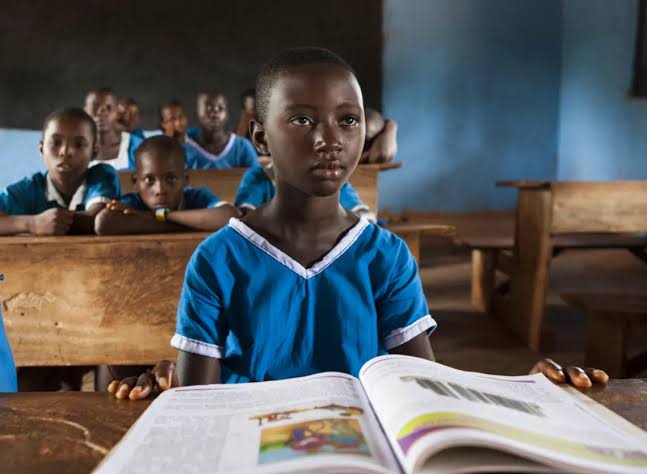Explore the impact of demographic changes on education in Nigeria, covering trends, challenges, and policy implications. Learn how urbanization, youth bulge, gender dynamics, and technological advancements shape Nigeria's educational landscape.
Demographic changes have profound impacts on various aspects of society. This includes education. In Nigeria country experiencing significant demographic shifts, understanding how these changes influence the education system is crucial. This article delves into the importance of demographic changes on education in Nigeria. It examines key trends challenges and implications for educational policies and practices.
Demographic Trends in Nigeria
Nigeria most populous country in Africa, is characterized by rapid population growth. It also has a youthful demographic profile. According to recent estimates. Nigeria's population is projected to surpass 400 million by 2050. This highlights the country's demographic dynamism. The population growth rate coupled with high fertility rates. And declining mortality rates underscores evolving demographic landscape. Shaping educational needs and demands.
Urbanization and Access to Education
Urbanization is prominent demographic trend influencing education in Nigeria. More people migrate to urban centers in search of economic opportunities. Consequently urban areas experience increasing demands for educational infrastructure and services. Access to quality education remains a challenge in urban areas. This challenge is exacerbated by inadequate school facilities. Overcrowded classrooms contribute to the issue. Disparities in educational resources also persist between urban and rural schools.
Youth Bulge and Educational Requirements
Nigeria's demographic structure is characterized by a significant youth bulge, with a large proportion of the population under the age of 25. This demographic phenomenon presents both opportunities and challenges for education. On one hand, investing in education for the youth population can potentially drive economic growth, foster innovation, and enhance national development. On the other hand, accommodating the educational needs of a rapidly growing youth population strains existing educational resources and infrastructure.
Gender Dynamics in Education
Gender dynamics play a crucial role in Nigeria's educational landscape. While efforts have been made to promote gender parity in education, disparities persist, particularly in northern regions where cultural and socio-economic factors hinder girls' access to education. Addressing gender inequalities in education is essential for harnessing the full potential of Nigeria's human capital and promoting inclusive socio-economic development.
Migration and Educational Challenges
Internal migration patterns in Nigeria impact educational access and outcomes, especially for migrant children and families. Migration often disrupts schooling continuity, leading to gaps in educational attainment and challenges in integrating migrant students into new educational environments. Addressing the educational needs of migrant populations requires targeted policies and interventions to ensure equitable access to education and support educational continuity.
Ethnic Diversity and Educational Policies
Nigeria's ethnic diversity poses unique challenges and opportunities for educational policies and practices. Educational policies must be inclusive and sensitive to the cultural and linguistic diversity of Nigeria's multi-ethnic society. Promoting culturally relevant curricula, languages of instruction, and community engagement in educational decision-making processes are essential for enhancing educational outcomes and promoting social cohesion.
Socio-Economic Status and Educational Inequality
Socio-economic status remains a significant determinant of educational access and attainment in Nigeria. Children from lower socio-economic backgrounds often face barriers such as poverty, limited access to educational resources, and inadequate school facilities. Addressing socio-economic disparities through targeted interventions, scholarships, and financial assistance programs can mitigate educational inequalities and promote educational equity.
Technological Advancements and Educational Transformation
Technological advancements present opportunities for transforming education delivery and improving learning outcomes in Nigeria. The digital revolution has facilitated e-learning initiatives, virtual classrooms, and access to educational resources online. Integrating technology into education enhances educational access, equity, and quality, particularly in underserved rural areas where traditional educational infrastructure is limited.
Policy Implications and Recommendations
To effectively respond to the impact of demographic changes on education in Nigeria, policymakers should consider the following recommendations:
- Investment in Educational Infrastructure: Prioritize investment in educational infrastructure to accommodate growing student populations, improve learning environments, and enhance educational quality.
- Promotion of Inclusive Education: Implement policies promoting inclusive education that addresses gender disparities, supports marginalized groups, and accommodates diverse learning needs.
- Capacity Building for Educators: Provide professional development opportunities and training programs for teachers to enhance instructional quality, pedagogical skills, and classroom management techniques.
- Enhanced Data Collection and Monitoring: Strengthen data collection systems to monitor demographic trends, educational outcomes, and equity indicators, informing evidence-based policymaking and resource allocation.
- Public-Private Partnerships: Foster partnerships between government, private sector stakeholders, and civil society organizations to mobilize resources, expertise, and innovative solutions for educational development.
- Integration of Technology: Promote the integration of technology into education through digital literacy programs, ICT infrastructure development, and e-learning initiatives to expand educational access and improve learning outcomes.
Conclusion
Demographic changes profoundly influence education in Nigeria, shaping educational needs, challenges, and opportunities in a dynamic socio-economic landscape. By understanding and responding to these demographic trends through targeted policies, investments, and innovative approaches, Nigeria can enhance educational access, equity, and quality, thereby empowering its youth population and driving sustainable socio-economic development. Embracing demographic diversity and leveraging educational investments are essential steps towards building a skilled workforce, fostering innovation, and achieving inclusive growth in Nigeria's evolving demographic context.
